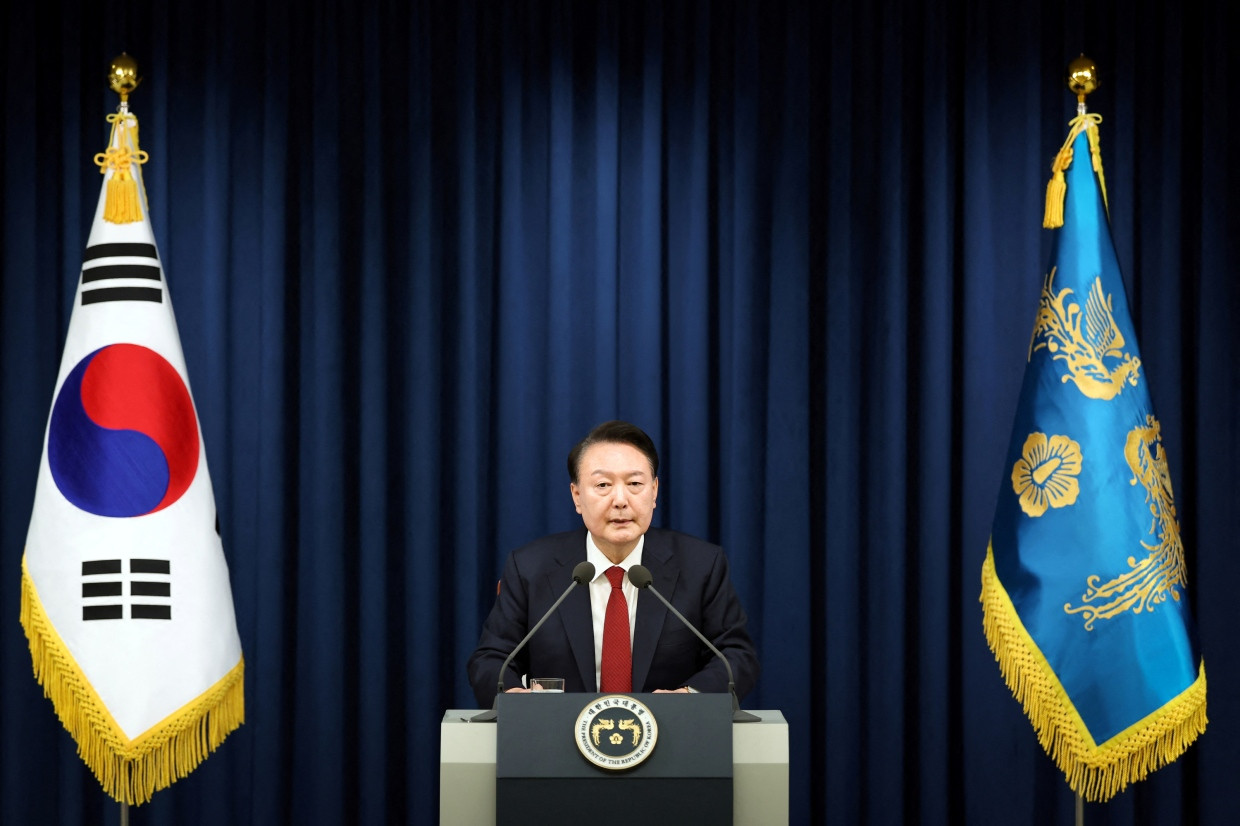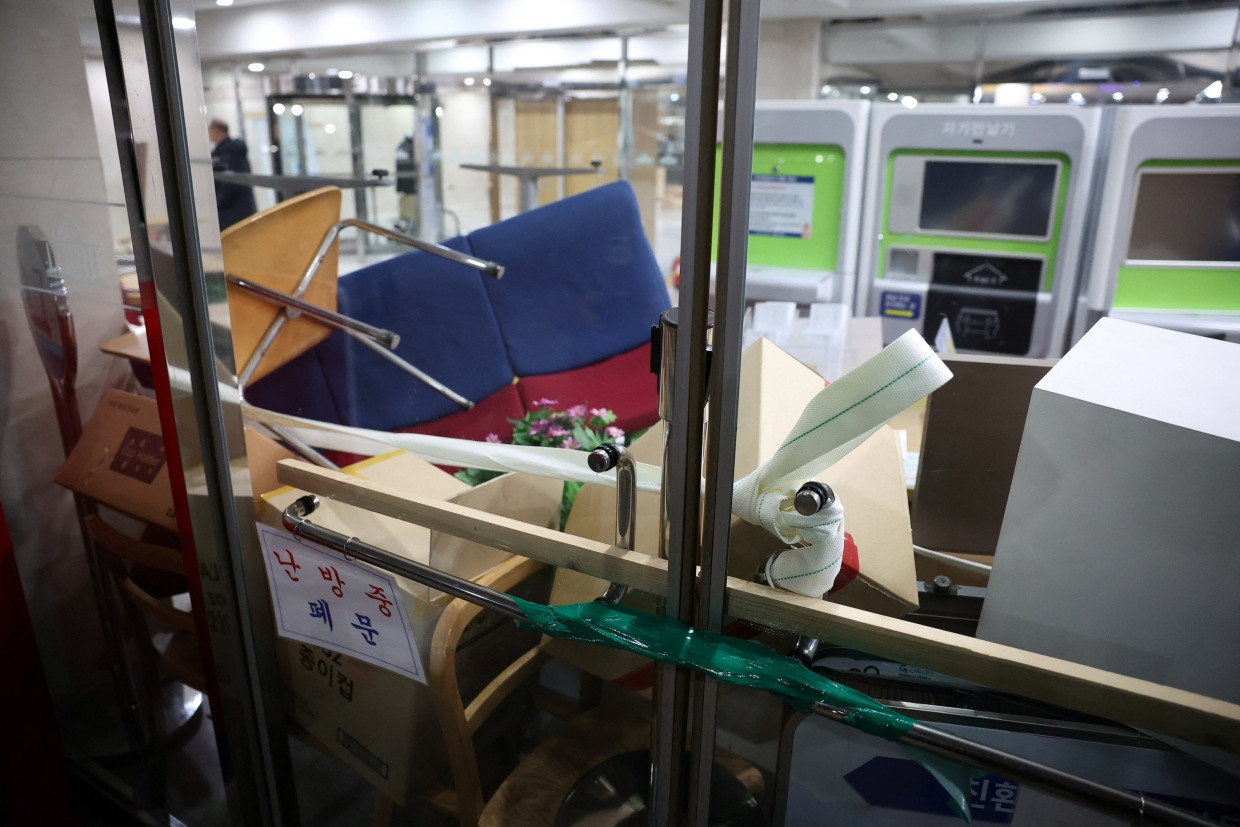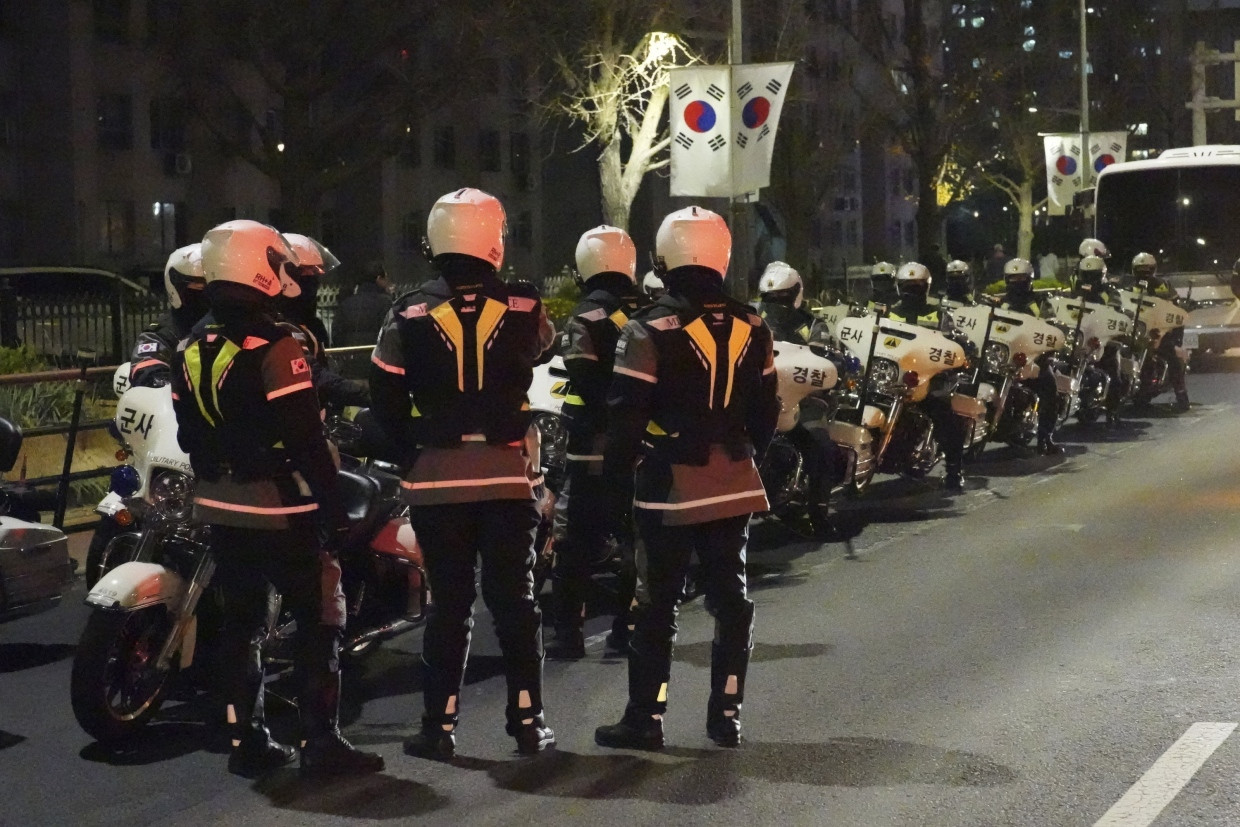Südkoreas Präsident Yoon Suk-yeol hat das von ihm ausgerufene Kriegsrecht nach nur wenige Stunden wieder aufgehoben. Damit reagierte er auf die Entscheidung des Parlaments, das Kriegsrecht zu blockieren. Die Soldaten zur Sicherung des Kriegsrechts seien abgezogen, ließ Yoon verlauten.
Zuvor waren 190 Abgeordnete in der Nacht zu Mittwoch (Ortszeit) in das Parlamentsgebäude gelangt und hatten einstimmig für die Aufhebung des Kriegsrechts gestimmt, wie Parlamentspräsident Woo Won-shik mitteilte. Das Militär hatte erklärt, es werde das Kriegsrecht aufrechterhalten, bis dies vom Präsidenten aufgehoben werde. Nach südkoreanischem Recht muss der Präsident allerdings das Kriegsrecht unverzüglich aufheben, wenn die Mehrheit des Parlaments das verlangt.
„Es ist noch nicht vorbei“
Nicht nur die oppositionelle Demokratische Partei, die im Parlament über die Mehrheit verfügt, erklärte das Kriegsrecht für verfassungswidrig, sondern auch Yoons eigene Partei, die konservative Volksmacht-Partei (PPP). „Es ist noch nicht vorbei”, sagte Cho Kuk, der Chef einer der kleineren Oppositionsparteien zu den Demonstranten vor dem Parlamentsgebäude. Yoon habe alle in einen Schockzustand versetzt. Er wolle Stimmen anderer Parteien sammeln, um Yoon des Amtes zu entheben.
Yoon hatte am Dienstagabend die Verhängung des Kriegsrechts in einer nicht angekündigten Fernsehansprache damit begründet, dass die parlamentarische Opposition mit ihrer Mehrheit im Abgeordnetenhaus „staatsfeindliche Aktivitäten“ unternommen und „die Verwaltung gelähmt“ hat.
Das Kriegsrecht war n Südkorea seit den achtziger Jahren nicht mehr verhängt worden. „Durch dieses Notstandskriegsrecht werden wir eine freie Republik Korea wieder aufbauen und schützen“, hatte der konservative Yoon angekündigt
Mit der Durchsetzung des Kriegsrechts war General Park An-su betraut worden. der in einem ab 23 Uhr Ortszeit geltenden Erlass „alle politischen Aktivitäten“ verboten hatte „Alle Nachrichtenmedien und Veröffentlichungen stehen unter der Kontrolle des Kriegsrechtskommandos“, hieß es darin.

The parliament in Seoul was initially cordoned off after Yoon's televised speech and was entered by soldiers. Hundreds of people gathered outside the building to demonstrate against the imposition of martial law, chanting: “Arrest Yoon Suk-yeol!”
Parliament President Woo later announced that the army had left the parliament building again. South Korea's constitution stipulates that martial law will be lifted if a majority in the 300-seat parliament requests it.
Opposition leader Lee Jae-myung of the Democratic Party called the imposition of martial law unconstitutional. “President Yoon Seok-yeol has betrayed the people. President Yoon's illegal declaration of martial law is null and void. From this moment on, Mr. Yoon is no longer President of South Korea.”
Criticism also came from Yoon's government itself. Ruling party leader Han Dong-hoon described martial law as “wrong,” according to local media reports. Han said they would “stop it together with the people.”

Before Yoon's speech, the opposition Democratic Party, with its majority in the Budget Committee, had blocked the planned budget for the coming year and requested impeachment proceedings against, among others, the Attorney General.
Yoon said the opposition has repeatedly used its majority in the National Assembly to impeach members of his Cabinet and block the passage of his government's budget plans. This has “paralyzed the administration,” Yoon said, adding: “The National Assembly, which should have been the foundation of free democracy, has become a monster that is destroying it.”

Since his government took office, the National Assembly has initiated 22 impeachment proceedings against government officials, said Yoon, and 10 more cases have been initiated since Parliament was sworn in in June. “This is a situation that is not only unprecedented in any country in the world, but has never occurred since the founding of our country.”
The Conservative Party's Yoon, who has low approval ratings, is facing a series of scandals, including corruption allegations against his wife. “I declare martial law to protect the free Republic of Korea from the threat of the communist forces of North Korea, to eradicate the despicable pro-North Korean subversive forces that are plundering the freedom and happiness of our people, and to protect the free constitutional order,” said Yoon, who has ruled South Korea since 2022.
Yoon pointed to Article 77 in the South Korean constitution, which authorizes the president to declare martial law “to meet a military necessity or to protect public safety.” No South Korean president has taken such a step since the end of the dictatorship in the late 1980s.
US government “seriously concerned”
After the declaration of martial law in South Korea, the US government is worried. “We are seriously concerned about the developments we are witnessing on the ground in South Korea,” the White House said. They are in contact with the South Korean government and are following the situation closely to find out more. The American government was not informed in advance about Yoonsl's plans. The USA is South Korea's closest ally. Almost 30,000 US soldiers are stationed there.
Russia also initially expressed concern about the situation in South Korea. “The situation is alarming. We are monitoring this closely,” said Kremlin spokesman Dmitry Peskov, according to the Russian news agency Interfax. Russia and North Korea are close allies. The two nuclear powers have just sealed a strategic partnership that also includes mutual military assistance in the event of an attack by a third country.
The Russian Embassy in Seoul and the Foreign Ministry in Moscow called on their citizens in South Korea to remain calm. Everyone should follow the recommendations of the authorities and not attend mass events, especially with a political orientation.









